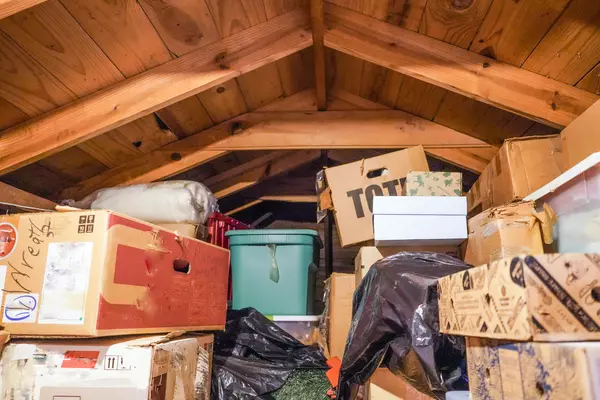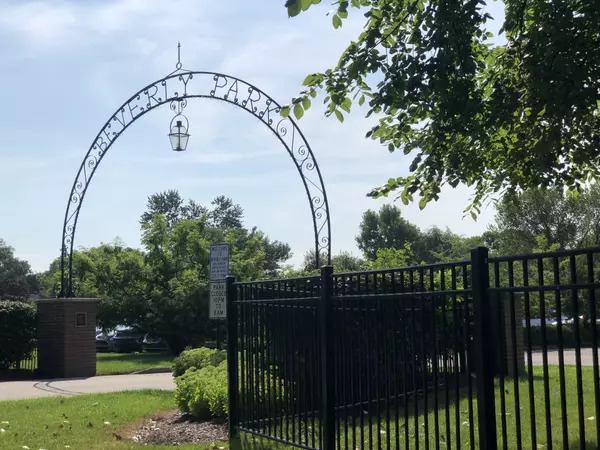5 Essential Insights Before You Downsize in Metro Detroit

As we journey through life, the idea of downsizing can become an appealing option for many seniors in Metro Detroit. Whether it’s to reduce maintenance, lower expenses, or simply embrace a lifestyle change, downsizing can offer a host of benefits. However, it’s not a decision to be taken lightly.
As a real estate agent specializing in senior downsizing in Metro Detroit, I’ve had the pleasure of guiding numerous clients through this significant transition. Here, based on my experience I have distilled the five most crucial insights you need to know before you take the leap, as well as the potential pitfalls of not considering these essential factors.
1. Assess Your Current and Future Needs
The first step in the senior downsizing process is to carefully evaluate your current lifestyle and anticipate your future needs. Consider the following questions:
- Health and Mobility: Will you need a home that accommodates potential mobility issues, such as single-level living or accessibility features like grab bars and wider doorways?
- Lifestyle and Hobbies: Do you need space for hobbies, guests, or a home office? Will a smaller space comfortably support your daily activities and interests?
- Proximity to Family and Services: How important is it for you to be close to family, grandchildren, friends, healthcare providers, and other essential services in Metro Detroit?
Without a thorough assessment, you risk moving into a home that doesn’t meet your needs, which could lead to frustration and additional expenses. For instance, if your new home lacks necessary accessibility features, you might face costly renovations down the road or even need to move again, disrupting your stability and peace of mind.
2. Financial Considerations and Equity
Downsizing can have significant financial implications, both positive and negative. It is crucial to have a clear understanding of your financial situation before making any decisions:
- Equity: How much equity do you have in your current home? This can provide a substantial financial cushion and influence your budget for a new home.
- Costs: Consider the costs associated with selling your current home and purchasing a new one, including real estate commissions, closing costs, and moving expenses.
- Monthly Expenses: Evaluate the potential savings on monthly expenses such as utilities, property taxes, and maintenance. A smaller home often means lower costs, which can be a major benefit.
That said, we have the advantage of locking in our property taxes at the time of purchase. Our state equalized value (SEV) is loosely based on one-half of our purchase price. In Michigan, our SEV can only increase by 5% or the rate of inflation whichever is higher. If we have lived in our home for a number of years, our property taxes will be low relatively speaking. Said differently, our SEV will be less than the current market value of our home leading to lower property taxes.
This is a perk of homeownership until you downsize. If you buy a new home your taxes will be based on the purchase price. You could downsize to a smaller home yet be being significantly higher property taxes. It is important to have a rough estimate of what your property taxes will be on your new home after you downsize to avoid any budget busting surprises.
Ignoring the financial aspects, including your new property taxes, can lead to significant stress and financial strain. Without understanding your equity, you might underprice your current home or overextend your budget on a new property. Unexpected costs can quickly add up, turning a financially freeing move into a burden. A detailed Equity Review Report, showing what your home is currently worth in today’s market, can provide the clarity you need to make sound financial decisions.
3. Emotional Readiness and Letting Go
Downsizing often involves leaving behind a home filled with memories. It’s important to acknowledge and address the emotional aspects of this transition:
- Sentimental Items: Decide what sentimental items you can’t part with and how they will fit into your new space. This might involve giving special possessions to family members or finding creative ways to display them in your new home. And it may be useful to engage a good design professional to help you.
- Support System: Lean on your support system, whether it’s family, friends, or a professional, to help navigate the emotional challenges of downsizing.
- Mindset: Embrace the opportunity to create new memories and experiences in a new home. Viewing this change as a fresh start can make the process more exciting and less daunting.
We have seen some homeowners miss this when they downsize. Underestimating the emotional impact of downsizing can lead to regret and a sense of loss. If you don’t take the time to process your feelings and make thoughtful decisions about your belongings, you might find yourself overwhelmed and unhappy in your new home. The transition could become a source of ongoing stress rather than a positive new chapter.
4. Practical Steps for Decluttering
One of the biggest tasks in senior downsizing is decluttering. A systematic approach can make this process more manageable and less overwhelming:
- Start Early: Begin decluttering well in advance of your planned move. This gives you ample time to sort through your belongings without feeling rushed.
- Categorize: Divide your items into categories such as keep, donate, sell, and discard. Be honest with yourself about what you truly need and use.
- Professional Help: Consider hiring a professional organizer or downsizing specialist who can provide guidance and support throughout the process.
- Storage Solutions: If you’re not ready to part with certain items but don’t have space for them in your new home, look into storage options. This can provide a temporary solution until you’re ready to make final decisions.
Decluttering prior to downsizing is often one of the biggest challenges our clients face when downsizing. We highly recommend bringing in professionals to assist you when decluttering. Failing to declutter effectively can result in a cluttered and chaotic new home, defeating the purpose of downsizing.
You may also incur unnecessary costs for moving and storing items you don’t truly need. The stress of living in a cluttered space can diminish the enjoyment of your new home, making it feel more like a burden.
5. Exploring Housing Options
Many homeowners delay downsizing because they don’t know their living options. And some homeowners will delay or avoid downsizing because they think downsizing means smaller. Downsizing doesn’t necessarily mean smaller and downsizing should be an improvement.
Downsizing doesn’t mean compromising on comfort or quality of life. Many of our clients are surprised at the numerous housing options tailored to the needs of seniors right here in Metro Detroit:
- Condos and Townhomes: These often offer the benefits of homeownership with less maintenance. Many communities also provide amenities such as pools, fitness centers, and social activities.
- Active Adult Communities: Designed specifically for seniors, these communities offer a range of services and social opportunities. They can be a great way to stay active and engaged.
- Independent Living: These communities offer a balance of independence and access to services and amenities. They can be an excellent choice for those looking to downsize without sacrificing their active lifestyle.
- Assisted Living: If you anticipate needing more support with daily activities in the future, assisted living facilities provide varying levels of care while promoting independence.
We encourage our clients to spend time on this step and our process is geared to helping our clients navigate the downsizing journey including understanding their living options. One of the key questions to answer is: is this going to be forever home? We see many of our clients with a two-step approach. For example, we had a client recently sell their large house and move into a condo. This is step one in the downsizing journey and their plan down the road will be to move into an independent living community when they are ready.
Regardless if your intention is to downsize once or to downsize twice, we suggest you get clear on what you want and have a downsizing plan.
Choosing the wrong type of housing can lead to dissatisfaction and maybe even health risks. For example, selecting a multi-story condo when you have mobility issues can make everyday tasks difficult and unsafe. Not exploring all available options might mean missing out on a community that offers a richer, more fulfilling lifestyle that is a better fit for you today and into the future. Taking the time to investigate different housing options ensures that you find a home that meets your needs and enhances your quality of life.
Downsizing is a significant decision that involves careful planning and consideration. As you embark on this journey, remember that you don’t have to do it alone. My goal is to provide the support and expertise you need to make this transition as smooth and rewarding as possible.
If you’re curious about how much equity you have in your current home, I invite you to reach out for an Equity Review Report. This comprehensive report will give you a clear picture of your home’s current market value and help you make informed decisions about your next steps. Together, we can ensure that your downsizing journey leads to a new chapter filled with comfort, convenience, and peace of mind.
In conclusion, downsizing can be a positive and transformative experience when approached with the right knowledge and support. By considering your needs, understanding the financial implications, addressing emotional readiness, taking practical steps to declutter, and exploring various housing options, you’ll be well-prepared to make this important transition.
At the heart of a successful downsizing is the realization that good things take time. If you're contemplating downsizing but are wary of the pitfalls of rushing the process, let's connect. Your journey to a simpler, more meaningful lifestyle can be as fulfilling as the destination itself. Email Jeff Higgins today at jeff@higginspartners.com.
Categories
Recent Posts










GET MORE INFORMATION
Managing Partner | License ID: 6506046014
280 North Old Woodward Avenue, Suite 100, Birmingham, MI, 48009, United States
